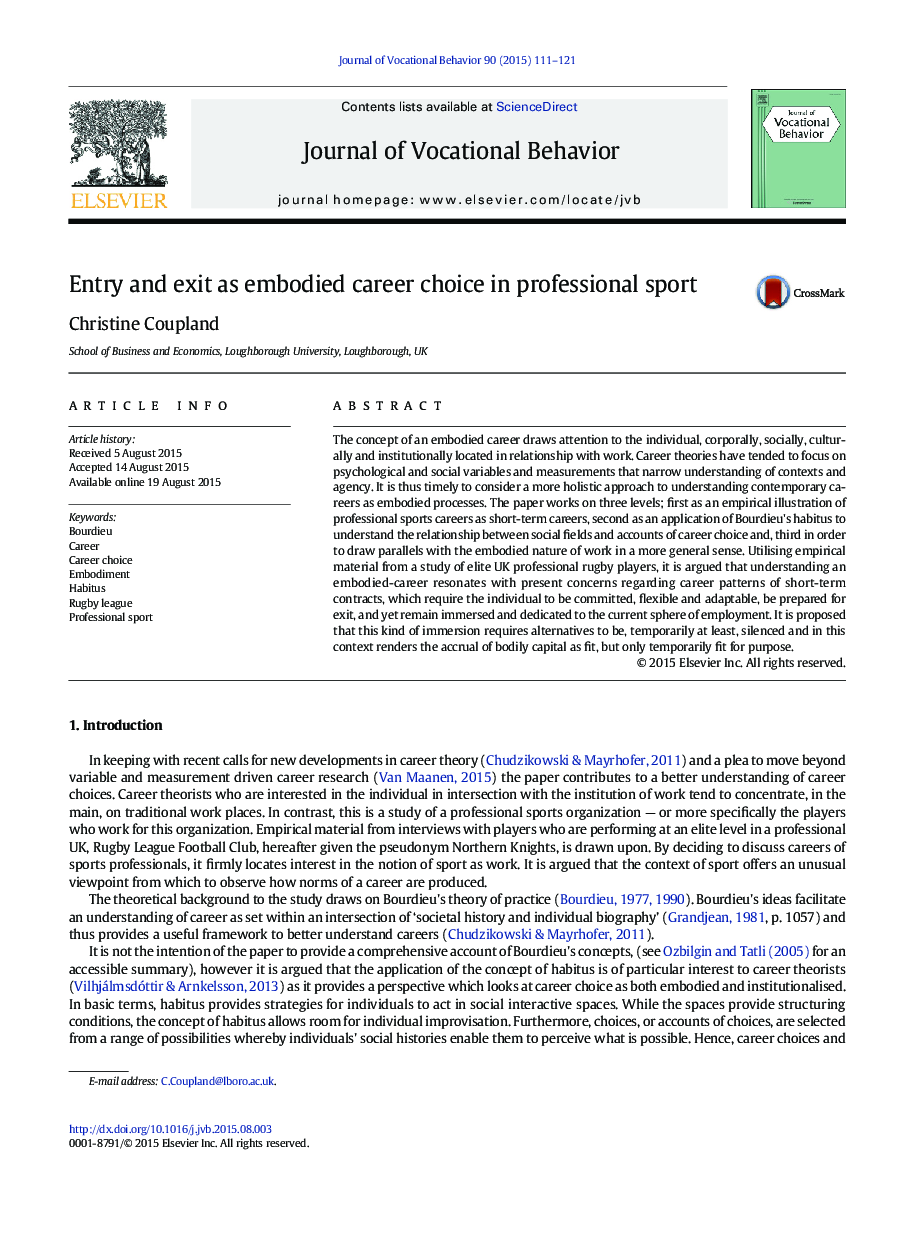| کد مقاله | کد نشریه | سال انتشار | مقاله انگلیسی | نسخه تمام متن |
|---|---|---|---|---|
| 886723 | 1471809 | 2015 | 11 صفحه PDF | دانلود رایگان |
• Career choice as socially determined
• Habitus and social structures impact on career choice
• Career contexts limit possible future selves.
• Embodied careers as careers with boundaries
• Physical literacy as a form of career capital
The concept of an embodied career draws attention to the individual, corporally, socially, culturally and institutionally located in relationship with work. Career theories have tended to focus on psychological and social variables and measurements that narrow understanding of contexts and agency. It is thus timely to consider a more holistic approach to understanding contemporary careers as embodied processes. The paper works on three levels; first as an empirical illustration of professional sports careers as short-term careers, second as an application of Bourdieu's habitus to understand the relationship between social fields and accounts of career choice and, third in order to draw parallels with the embodied nature of work in a more general sense. Utilising empirical material from a study of elite UK professional rugby players, it is argued that understanding an embodied-career resonates with present concerns regarding career patterns of short-term contracts, which require the individual to be committed, flexible and adaptable, be prepared for exit, and yet remain immersed and dedicated to the current sphere of employment. It is proposed that this kind of immersion requires alternatives to be, temporarily at least, silenced and in this context renders the accrual of bodily capital as fit, but only temporarily fit for purpose.
Journal: Journal of Vocational Behavior - Volume 90, October 2015, Pages 111–121
